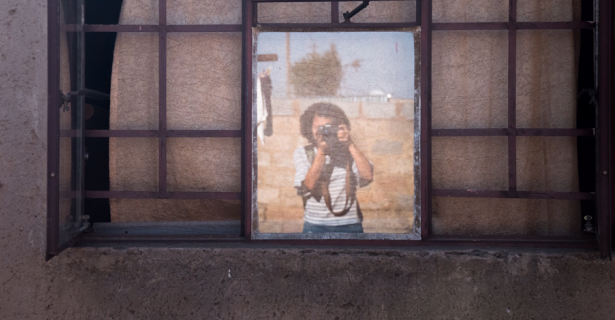The past month and a half I have been working as a photojournalist for the South African newspaper, Mail&Guardian – an internship I got through the IGL’s Program for Narrative and Documentary Practice and its director Gary Knight -- as well as pursuing personal photographic/videographic projects.
In my travels across the continent to Ghana, around South Africa and into Swaziland, I have covered everything from hard news to the latest in South African hip-hop. Much of the narrative of the continent focuses solely on the poor and the struggling but through my time here I have been exposed to the ‘other side’ of Africa; the supremely rich and thriving. This dichotomy is present in the everyday landscape of South Africa and I believe is showing through the work I have produced.
While traveling with Paul Botes and Niren Tolsi through the Eastern Cape following the lives of the families whose men were lost in the Marikana Massacre, I began to question journalism.
“What does it feel like to only know a person posthumously?” I asked them after a long day of interviewing families and driving on bumpy, mountain back roads. For me, this was a part of the journalistic experience that I was still working through; often times, especially as a photographer, one does not personally know the people whose stories you have undertaken to tell and, in some cases, they are no longer with us.
After a few moments of reflection, Niren described this experience akin to ‘chipping away at marble’ —in which every person, every story is like a pristine, marble block waiting to be explored. As a different facet of each man’s life is discovered by information provided by interviews with immediate families, co-workers, significant others and forensic evidence, their forms begin to take shape.
As journalists, our job is to preserve stories, amplify voices and give shape to marble. This can be a trying task — taking on others’ burdens with the pressure to tell the story accurately, with color and with honesty. A common reaction to cameras and notebooks are suspicious looks and a reciprocal barrage of questions: Journalist? Why are you here? How will you help? What will you do with our stories? How are you different from anyone else who takes a snapshot and leaves?
Being a young journalist, I can’t say that I have completely reconciled with my positionality as both a taker and teller of stories. What I can say is that I have learned a lot in my short time here, both in the technical aspects of journalism but also in the personal. There is still more time yet to learn, experience and capture, and I look forward to what more lies within the South African framework and beyond.
My online portfolio can be found here.

